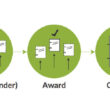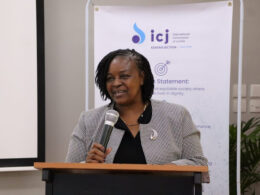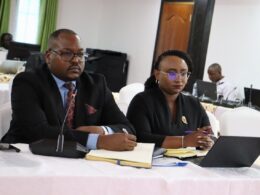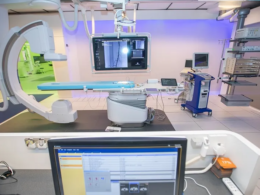ICJ Kenya is currently implementing a project on open contracting titled “From Disclosure to Impact: Deepening and Broadening Open Contracting in Africa.” The project seeks to support partners tracking the performance of public contracts in targeted sectors in Malawi, Kenya, Ghana, Uganda, and Nigeria with a focus on improving value for money, service delivery, promoting fair business practices as well as addressing fraud, collusion, and corruption in public contracting. To this end, ICJ Kenya is implementing the Kenya project focusing on selected agencies within the health and education sectors.
Transparency in public procurement remains a crucial challenge within the Kenyan public sector. According to the latest report by the Commission on Administrative Justice (CAJ), only 46% of public entities sampled disclose information on procurement. Further, public institutions mostly only disclose information on advertised tenders and not on tenders awarded.1 This indicates the gaps in access procurement and contract information from public agencies, with most agencies still not proactively disclosing information as required under the Access to Information Act.
ICJ Kenya has been working under the Open Government Partnership (OGP) to monitor the government’s implementation of the Open Contracting Commitments.2We have also been monitoring compliance with Open Contracting Data Standards (OCDS) of the public procurement platforms.
In this regard, we conducted three mappings of the Public Procurement Information Portal (PPIP), one in 2018 and two in 2020. The findings from the mappings are that open contracting is yet to be achieved in Kenya. More so, the information disclosed is mostly historical, which undermines the usability of the data. Data is not available at all procurement stages. Most institutions focus only on tender advertisements, limiting non-state actors’ ability to monitor all procurement stages and the implementation of contracts. Additionally, information on contracts reserved under the Access to Government Procurement Opportunities (AGPO) for women and youth are not disclosed.
Consequently, although Kenya has enacted the Access to Information Act and has made substantial policy declarations such as Kenya’s commitments under the Open Government Partnership, National Action Plan III, and Executive Order No.2 of 2018, there are still gaps in entrenching these best practices in most public institutions.
Upon this background, ICJ Kenya recently trained journalists who report on governance and corruption issues in Nairobi and Machakos Counties to discuss their experiences with obtaining procurement information from government agencies and building their capacity on how to effectively use the PPIP and open contracting to hold government agencies accountable.
The journalists were selected from print, radio, TV and online media have been trained on open contracting and its importance; how to effectively use the PPIP and open contracting in gathering data and reporting on procurement-related corruption. They also shared their experiences. Through this training, we constituted a working group of journalists who will constantly monitor and report procurement issues.
Download our OCDS mapping report HERE
Download our factsheet on Open Procurement HERE











